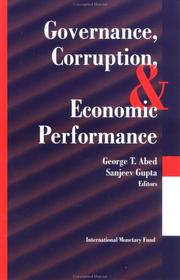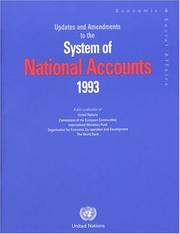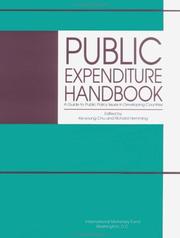| Listing 1 - 5 of 5 |
Sort by
|
Book
ISBN: 022643334X Year: 2018 Publisher: Chicago : University of Chicago Press,
Abstract | Keywords | Export | Availability | Bookmark
 Loading...
Loading...Choose an application
- Reference Manager
- EndNote
- RefWorks (Direct export to RefWorks)
If wars are costly and risky to both sides, why do they occur? Why engage in an arms race when it's clear that increasing one's own defense expenditures will only trigger a similar reaction by the other side, leaving both countries just as insecure-and considerably poorer? Just as people buy expensive things precisely because they are more expensive, because they offer the possibility of improved social status or prestige, so too do countries, argues Lilach Gilady. In The Price of Prestige, Gilady shows how many seemingly wasteful government expenditures that appear to contradict the laws of demand actually follow the pattern for what are known as Veblen goods, or positional goods for which demand increases alongside price, even when cheaper substitutes are readily available. From flashy space programs to costly weapons systems a country does not need and cannot maintain to foreign aid programs that offer little benefit to recipients, these conspicuous and strategically timed expenditures are intended to instill awe in the observer through their wasteful might. And underestimating the important social role of excess has serious policy implications. Increasing the cost of war, for example, may not always be an effective tool for preventing it, Gilady argues, nor does decreasing the cost of weapons and other technologies of war necessarily increase the potential for conflict, as shown by the case of a cheap fighter plane whose price tag drove consumers away. In today's changing world, where there are high levels of uncertainty about the distribution of power, Gilady also offers a valuable way to predict which countries are most likely to be concerned about their position and therefore adopt costly, excessive policies.
International relations --- International relations --- Prestige. --- Social aspects. --- Economic aspects. --- political economy, economic conditions, international economies, diplomacy, conflict, arms race, expensive things, consumers, consumerism, capitalism, prestige items, social status, wasteful government expenditures, defense spending, national security, laws of demand, veblen goods, space programs, weapons systems, foreign aid program, excess, policy implications, wealth, money, influence, power.
Book
ISBN: 9781463935733 1463935730 1463936389 1463988869 1283538539 9786613850980 Year: 1991 Publisher: Washington, D.C. : International Monetary Fund,
Abstract | Keywords | Export | Availability | Bookmark
 Loading...
Loading...Choose an application
- Reference Manager
- EndNote
- RefWorks (Direct export to RefWorks)
We need to understand more deeply a number of critical issues that confront the World Bank and its member countries before we can transform knowledge into effective actions.
Armed Forces --- Defense budgets --- Military budgets --- Appropriations and expenditures --- E-books --- Exports and Imports --- Foreign Exchange --- Macroeconomics --- Public Finance --- Women''s Studies' --- National Security and War --- Economics of Gender --- Non-labor Discrimination --- Trade: General --- Development Planning and Policy: Trade Policy --- Factor Movement --- Foreign Exchange Policy --- Public finance & taxation --- International economics --- Currency --- Foreign exchange --- Gender studies --- women & girls --- Finance --- Defense spending --- Women --- Exchange rates --- Exchange rate policy --- Exports --- Expenditure --- Gender --- International trade --- Expenditures, Public --- Population --- United States --- Women & girls --- Women's Studies

ISBN: 1589061160 1462306853 9786613849939 1455273996 1455230537 1283537486 9781455230532 9781283537483 9781589061163 Year: 2002 Publisher: Washington, D.C. International Monetary Fund
Abstract | Keywords | Export | Availability | Bookmark
 Loading...
Loading...Choose an application
- Reference Manager
- EndNote
- RefWorks (Direct export to RefWorks)
This volume presents 18 IMF research studies on the causes and consequences of corruption, as well as how it can most effectively be combated to improve governance, increase economic growth, and reduce poverty. The authors examine how civil service wages affect corruption, the impact of natural resource availability on corruption, the impact of corruption on a country’s income distribution and incidence of poverty, and the effect of corruption on government expenditures on health and education.
Public finance --- Political corruption --- Expenditures, Public --- Corruption (Politique) --- Dépenses publiques --- Economic aspects --- Aspect économique --- International Monetary Fund --- 339.96 --- 336.5 --- AA / International- internationaal --- 336.208 --- 343.35 --- 343.30 --- 323.4 --- Ontwikkelingshulp. Ontwikkelingssamenwerking. Ontwikkelingsproblematiek --- Overheidsuitgaven. Openbare financien. Staatsuitgaven. Lopende staatsuitgaven --- Grondslag, vereffening, inning en controle van de belastingen. Fiscale fraude. Zwartwerk. Parallelle economie. --- Misdrijven tegen de openbare administratie, de belasting- en administratieve wetgeving. --- Misdrijven tegen het openbaar gezag: algemeenheden. --- Politieke zeden.Partijgeest. Nepotisme. Favoritisme. --- Government - General --- Law, Politics & Government --- Political Institutions & Public Administration - General --- Economic aspects. --- 336.5 Overheidsuitgaven. Openbare financien. Staatsuitgaven. Lopende staatsuitgaven --- 339.96 Ontwikkelingshulp. Ontwikkelingssamenwerking. Ontwikkelingsproblematiek --- International Monetary Fund. --- Dépenses publiques --- Aspect économique --- Boss rule --- Corruption (in politics) --- Graft in politics --- Malversation --- Political scandals --- Politics, Practical --- Corrupt practices --- Internationaal monetair fonds --- International monetary fund --- Corruption --- Misconduct in office --- Politieke zeden.Partijgeest. Nepotisme. Favoritisme --- Grondslag, vereffening, inning en controle van de belastingen. Fiscale fraude. Zwartwerk. Parallelle economie --- Misdrijven tegen het openbaar gezag: algemeenheden --- Misdrijven tegen de openbare administratie, de belasting- en administratieve wetgeving --- IMF. --- Labor --- Macroeconomics --- Public Finance --- Taxation --- Criminology --- Natural Resources --- Bureaucracy --- Administrative Processes in Public Organizations --- National Government Expenditures and Related Policies: General --- Aggregate Factor Income Distribution --- Institutions and the Macroeconomy --- National Security and War --- Personal Income, Wealth, and Their Distributions --- Corporate crime --- white-collar crime --- Public finance & taxation --- Labour --- income economics --- Environmental management --- Education --- Expenditure --- Structural reforms --- Defense spending --- Personal income --- Crime --- Macrostructural analysis --- National accounts --- Income --- Income distribution --- Russian Federation --- Income economics --- White-collar crime

ISBN: 1589062523 1452741263 1455299324 9786613847126 1451950519 1283534673 9781451950519 9781283534673 9781452741260 9781589062528 9781455299324 6613847127 Year: 2004 Publisher: Washington International Monetary Fund
Abstract | Keywords | Export | Availability | Bookmark
 Loading...
Loading...Choose an application
- Reference Manager
- EndNote
- RefWorks (Direct export to RefWorks)
The Democratic Republic of the Congo is making significant strides on both the political and economic fronts to extricate itself from one of the bloodiest wars in African history. This remarkable turnaround offers other countries and the international community valuable lessons in preventing conflict and in coping with postconflict recovery. This book also provides a summary of the most recent research on conflict, an analysis of the causes of conflicts in Africa, and an outline of their key economic characteristics.
Internal politics --- Economic policy and planning (general) --- International Monetary Fund --- Sub-Saharan Africa --- Congo --- Postwar reconstruction --- Civil war --- Reconstruction d'après-guerre --- Guerre civile --- Economic aspects --- Aspect économique --- Congo (Democratic Republic) --- Congo (République démocratique) --- Economic policy. --- Economic conditions --- Politique économique --- Conditions économiques --- National income --- 330.96751 --- 331.30 --- 331.31 --- 331.32 --- 331.33 --- 338.340 --- AFR / Africa - Afrika - Afrique --- CG / Congo --- National accounting --- National income accounting --- Income accounting --- Social accounting --- Accounting --- Economische toestand --- Economisch beleid --- Structuur van de economie --- Structureel beleid. Reglementering. Dereglementering. Ordnungspolitik --- Algemene ontwikkeling in de Derde Wereld --- Civil wars --- Intra-state war --- Rebellions --- Government, Resistance to --- International law --- Revolutions --- War --- Post-conflict reconstruction --- Reconstruction, Postwar --- Internationaal monetair fonds --- International monetary fund --- Economic conditions. --- E-books --- Banks and Banking --- Exports and Imports --- Macroeconomics --- Money and Monetary Policy --- Public Finance --- Foreign Exchange --- National Government Expenditures and Related Policies: General --- Monetary Systems --- Standards --- Regimes --- Government and the Monetary System --- Payment Systems --- Banks --- Depository Institutions --- Micro Finance Institutions --- Mortgages --- National Security and War --- Price Level --- Inflation --- Deflation --- Public finance & taxation --- Monetary economics --- International economics --- Banking --- Investment & securities --- Expenditure --- Currencies --- Defense spending --- Mining sector --- Money --- Natural resources --- Environment --- Economic sectors --- Expenditures, Public --- Banks and banking --- Foreign exchange --- Prices --- Congo, Democratic Republic of the

ISBN: 1557752222 9781455219421 1455219428 9781557752222 1455241814 9781455241811 1455235644 9781455235643 128353813X 9781283538138 9786613850584 6613850586 Year: 1991 Publisher: Washington, D.C. IMF
Abstract | Keywords | Export | Availability | Bookmark
 Loading...
Loading...Choose an application
- Reference Manager
- EndNote
- RefWorks (Direct export to RefWorks)
This handbook, edited by Ke-young Chu and Richard Hemming, offers guidance to officials formulating public policy recommendations, so that the aggregate level of public spending conforms with the economy's overall resource capacity. The handbook looks at the impact of public spending on the efficiency of resource use and explores the basis for distinguishing between productive and unproductive spending.
Public expenditure --- Third World: economic development problems --- Developing countries --- 336.532<1-772> --- -Government spending policy --- -Developing Countries --- 336.01 --- 336.020 --- 336.61 --- 338.340 --- AA / International- internationaal --- LDC / Developping Countries - Pays En Développement --- Government spending policy --- -336.39091724 --- Expenditures, Public --- Public spending policy --- Spending policy, Government --- Economic policy --- Finance, Public --- Full employment policies --- Unfunded mandates --- 336.532<1-772> Procedures for evaluation and selection of public investments--Onontwikkelde, onderontwikkelde gebieden --- Procedures for evaluation and selection of public investments--Onontwikkelde, onderontwikkelde gebieden --- Appropriations and expenditures --- Appropriations and expenditures. --- Overheidsbemoeiing op economisch gebied. --- Omvang, indeling en evolutie van de overheidsuitgaven: algemeenheden. --- Financieel beleid. --- Algemene ontwikkeling in de Derde Wereld. --- Government policy --- Dépenses publiques --- Politique gouvernementale --- Pays en développement --- Crédits budgétaires et dépenses --- 336.39091724 --- Overheidsbemoeiing op economisch gebied --- Omvang, indeling en evolutie van de overheidsuitgaven: algemeenheden --- Financieel beleid --- Algemene ontwikkeling in de Derde Wereld --- Emerging nations --- Fourth World --- Global South --- LDC's --- Least developed countries --- Less developed countries --- Newly industrialized countries --- Newly industrializing countries --- NICs (Newly industrialized countries) --- Third World --- Underdeveloped areas --- Underdeveloped countries --- Developing countries: economic development problems --- Exports and Imports --- Financial Risk Management --- Labor --- Macroeconomics --- Public Finance --- Health Policy --- National Government Expenditures and Related Policies: General --- Debt --- Debt Management --- Sovereign Debt --- Employment --- Unemployment --- Wages --- Intergenerational Income Distribution --- Aggregate Human Capital --- Aggregate Labor Productivity --- Public Enterprises --- Public-Private Enterprises --- Aggregate Factor Income Distribution --- Public finance & taxation --- Civil service & public sector --- Labour --- income economics --- Public ownership --- nationalization --- Expenditure --- Public sector --- Defense spending --- Public employment --- Public enterprises --- Economic sectors --- Income --- National accounts --- Economic theory --- Debts, External --- Debts, Public --- United States --- Income economics --- Nationalization
| Listing 1 - 5 of 5 |
Sort by
|

 Search
Search Feedback
Feedback About UniCat
About UniCat  Help
Help News
News